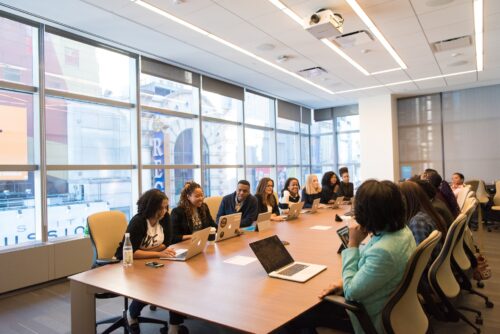Workplace sexual harassment is a serious issue that affects individuals and organisations throughout New South Wales. In order to prevent workplace sexual harassment in NSW, it is important for employers to establish clear policies and procedures that outline expectations for employee behavior. These policies should emphasize the importance of treating all employees with respect and dignity, and should outline the consequences for engaging in sexual harassment or other forms of inappropriate conduct.
In addition to establishing policies and procedures, employers can also take steps to raise awareness about workplace sexual harassment among their employees. This may include providing training and education programs that help employees understand what constitutes sexual harassment, how to recognise it, and how to report it. By providing employees with the tools and resources they need to prevent and address workplace sexual harassment, employers can create a safer and more respectful work environment.
Ultimately, preventing workplace sexual harassment NSW requires a commitment from both employers and employees. Employers must be proactive in establishing policies and procedures that promote a culture of respect and inclusivity, while employees must be willing to speak up and report instances of sexual harassment when they occur. By working together, we can create a workplace environment that is free from harassment, discrimination, and other forms of inappropriate behaviour.
A fundamental human right is the right to be respected at work
Respect at Work Taskforce is being formed by SafeWork NSW to address harmful workplace practices that particularly impact women in the workplace, such as sexual harassment. A fundamental human right is the right to be respected at work
A worker’s right to be treated with respect at work is a fundamental human right. The legal requirements of the workplace will require that businesses take all reasonable and practicable measures to either eliminate or minimise the risks associated with harmful workplace behaviours. In the workplace, sexual harassment is one of the most harmful types of behaviour.
Sexual harassment within the workplace is a priority for SafeWork NSW. There is no doubt that sexual harassment in the workplace can cause a great deal of damage and harm. SafeWork NSW is aware of this and is committed to eliminating it.
Describe the problem in more detail in New South Wales
The right to respect at work belongs to every worker. Workplace sexual harassment isn’t okay and shouldn’t be tolerated.
In order to maintain a safe and healthy workplace, employers should create and maintain policies and procedures. Among these measures are the design, organisation, and management of work so that harmful workplace behaviours, such as sexual harassment, are mitigated.
Women’s economic strategy focuses on reducing sexual harassment at work, which reinforces the New South Wales Government’s commitment to make workplaces safer for women. Moreover, it backs the Respect@Work: Sexual Harassment National Inquiry Report from 2020, which calls on employers to take reasonable steps to prevent sexual harassment.
Putting the facts around workplace sexual harassment into context: An independent report by Broderick New South Wales
Over the past five years, 39 percent of women have reported sexual harassment at work, while 26 percent of men have reported similar incidents.
Women, people with a diverse sexual orientation and young people (24-35 years old) are particularly likely to experience sexual harassment and everyday sexism at unacceptable rates.
It was found that both women and men had experienced physical or sexual assault, with the prevalence being highest among people who identified as having a diverse sexual orientation.
It has resulted in low reporting rates from this lack of trust, which has resulted in individuals and organisations being unaware of, or remaining in denial about, the prevalence and impact of these behaviours.
Sexual harassment behaviors most commonly experienced in the last five years were:
- The intrusion of private information or comments regarding the appearance of one’s body that offended the individual (52%).
- The use of sexually suggestive comments or jokes that offended the recipient (43%).
- Staring or leering that was inappropriate and intimidated the person (40%).
As part of the action plan developed by the New South Wales Taskforce, the following actions will be taken:
- Make employers aware of behaviours that are harmful to the workplace and their responsibility to mitigate these behaviours
- Support and assistance for women in the workplace should be available in a safe environment
- Establish an array of resources and guidance material that will be aimed at workers, employers, and human resource professionals
- Take action with respect to regulations, targeting industries and workplaces with a high risk of gender-based violence and harassment, especially in places where this type of violence and harassment is prevalent.
When employees in New South Wales witness or experience sexual harassment, what should they do?
It is important that you take the following actions if you have experienced or witnessed sexual harassment at work:
- In the event that you can, request that the person harassing you cease their behaviour.
- Tell someone what’s going on. In the event that you are a victim of or witness to sexual harassment at work, your workplace must have processes in place to deal with it. As part of this process, there should be a confidential report process that can be followed.
- When you aren’t sure how the process works, ask your supervisor or manager, your health and safety rep, or someone else you trust at work who is familiar with the process.
- You may feel uncomfortable reporting it to someone at work, so if you don’t feel comfortable doing so, you can talk to someone in your own personal life that you trust, such as a friend or a family member, a doctor or a counsellor.
- Assaulted or threatened individuals should call the New South Wales police and seek the assistance of someone they trust or a mental health agency.
Workers’ rights on the job
Safety training is a right that every worker has the right to receive sexual harassment prevention training. Training should be given to all employees, regardless of the length of time they have worked for the company.
According to the NSW workplace safety provisions, employers are required to provide their employees with training aimed at preventing workplace sexual harassment, including:
- Whether new or existing employees
- Managers, supervisors, team leaders, and executives in particular
- Contractors and subcontractors
A variety of sexual harassment prevention training options are currently available in New South Wales from WHS and Training Compliance Solutions. In addition to providing sexual harassment prevention training at your workplace, we also offer online live courses via Zoom or self-paced online courses.
It is possible to tailor our training sessions for specific industries in New South Wales, making them suitable for most workplaces. Professionals who are experts in the area of sexual harassment prevention conduct the sexual harassment prevention training.
Access Psychosocial Hazards Books from Amazon: Psychosocial Hazards












